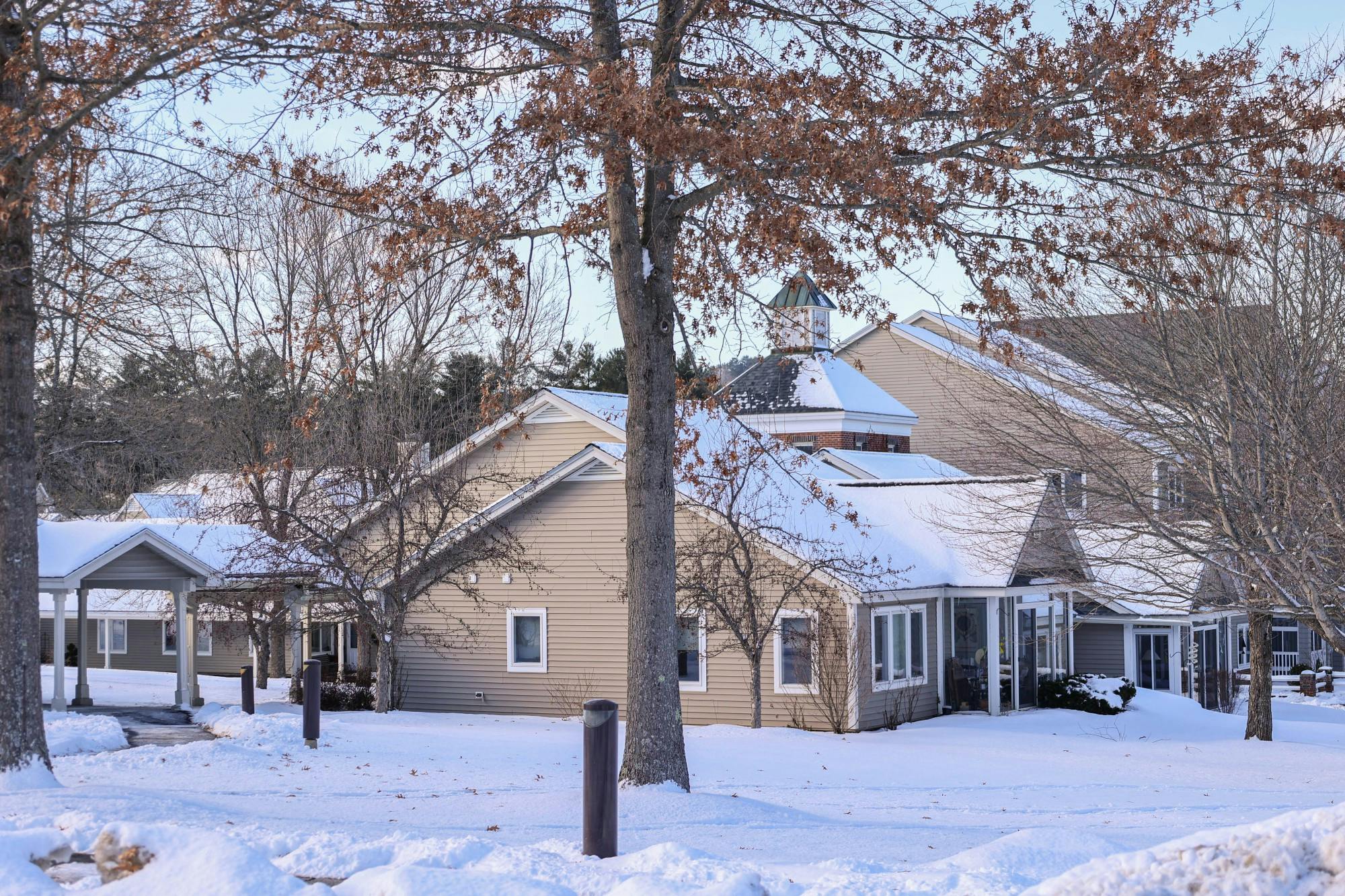Omicron has found its way into nursing and retirement homes in the Upper Valley, which have reported rising cases and staff shortages.
Although COVID-19 cases in residential care facilities in the Upper Valley have declined substantially since the elderly became eligible for booster vaccines, infection rates now seem to be climbing, according to interim medical director of Hanover Terrace Daniel Stadler. Stadler noted, however, that, “the severity of those cases does seem to be dramatically less.”
According to Kendal at Hanover’s director of community relations and marketing Jeff Roosevelt, cases have spiked slightly in the last two weeks despite the fact that a majority of residents have received their booster shots. He said the rise in cases now seems to be “coming back down.”
Similarly, Wheelock Terrace assisted living facility director Melissa Suckling described a small outbreak of six residents and one staff member that occurred after Thanksgiving, which she believes resulted from visitors over the holiday.
“Otherwise we’ve had no [recent] cases with residents here in our facility,” she said. “We haven’t had any major outbreaks.”
According to a state COVID-19 dashboard, on Jan. 19, New Hampshire experienced a seven day average of 2,663 active COVID-19 cases, and a seven day average positive test rate of 20.8%. Despite this, Suckling said that conditions at Wheelock Terrace have been gradually improving.
“They have more access to family than before — they can interact with each other a lot more,” Stadler said. “I think the residents by and large are doing better.”
Suckling said that Wheelock Terrace has returned to communal dining after putting it on hold during the nursing home’s minor Thanksgiving outbreak. She said the home has also been able to invite masked entertainers and take bus trips but has not been able to hold events considered “high risk,” like trips to local restaurants or museums.
“Activities are still kind of running — as normal as the new normal can be,” she said.
Suckling compared living at an assisted living facility with other residents to living at home with family, so while she encourages resident mask wearing and social distancing, her residents continue to socialize. She added that Wheelock Terrace residents are recommended to wear masks, while staff members are required to.
“This is the residents’ home and we’re visitors in their homes, so we have to protect them,” she said.
Hanover Terrace resident Dorothy Anderson said she is accustomed to mask wearing.
“It’s like putting on your jacket,” she explained.
Stadler noted that he has observed staff lean toward lessening restrictions to protect residents’ “well-being.”
Sadler said the omicron variant’s impact on healthcare workers has created a staffing shortage. With the “heightened vulnerability” of this population, Sadler said that he thinks people are hesitant to work in residential care facilities for fear of transmitting the virus to residents.
“The workforce issues are really the big issue,” he said. “[Residents] used to not be able to socialize because they were in their rooms, but now there’s no activities director to run the bingo game for them to come to.”
Another concern he expressed is the communication barrier created by masking requirements, particularly for people with cognitive impairments or hearing loss.
“[The residents] can’t hear us, or see our mouths move, or see our smile,” he said.
Suckling added that the rise of cases in the Upper Valley has caused residents and their families to rethink seeking help from Dartmouth Hitchcock Medical Center because of how “overrun” the hospital is. Instead, they are trying to work more with patients’ individual physicians, she said.
She explained that as infection rates rise in the region, families and visitors have been very “conscientious,” choosing to FaceTime rather than visit in person if they know they have been exposed to COVID-19.
Suckling said that her motto is “trying to keep [residents] as happy, socially active, and physically active as we can.”




